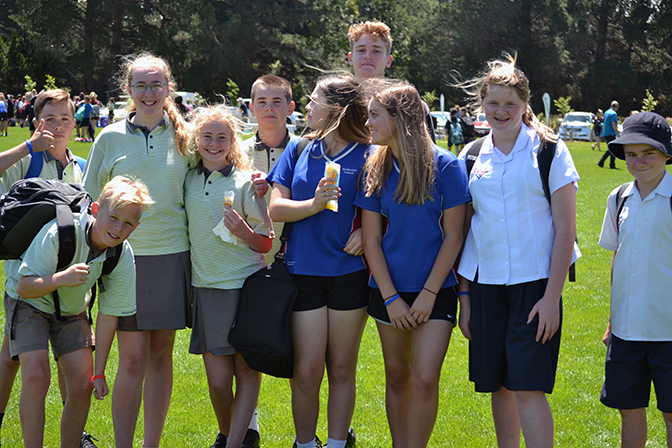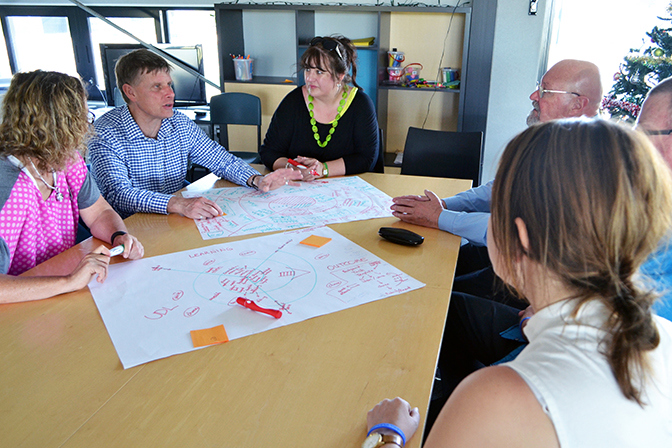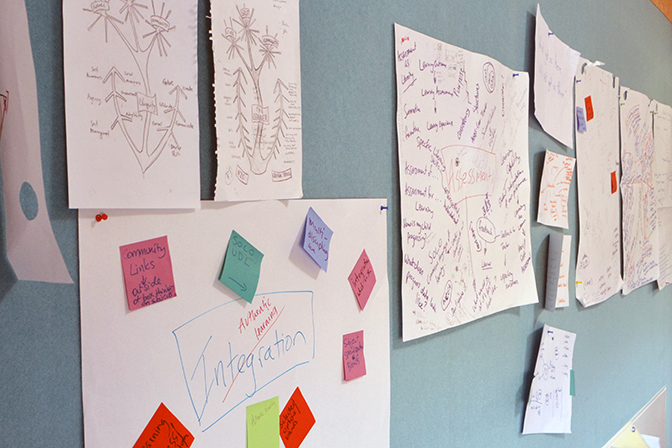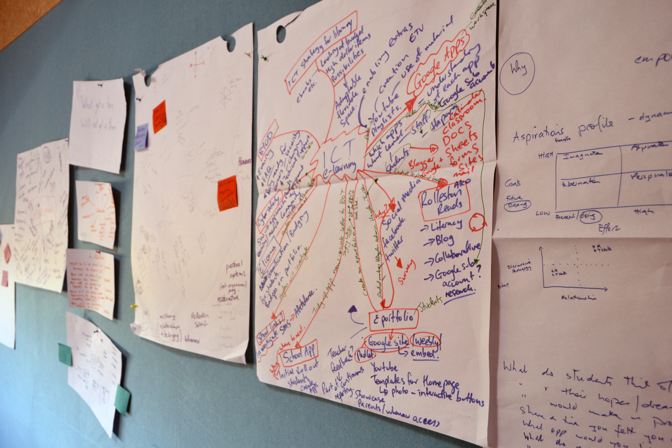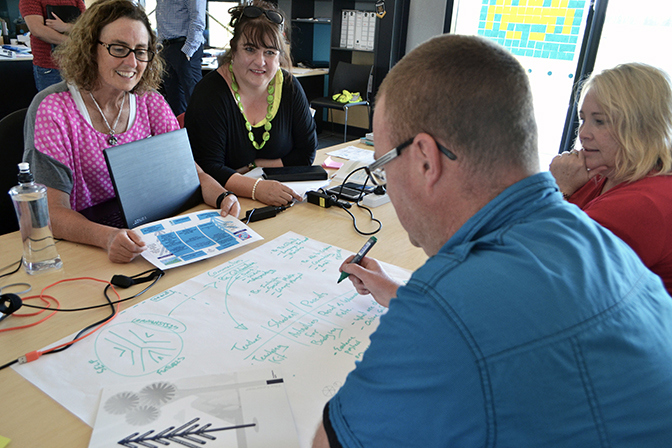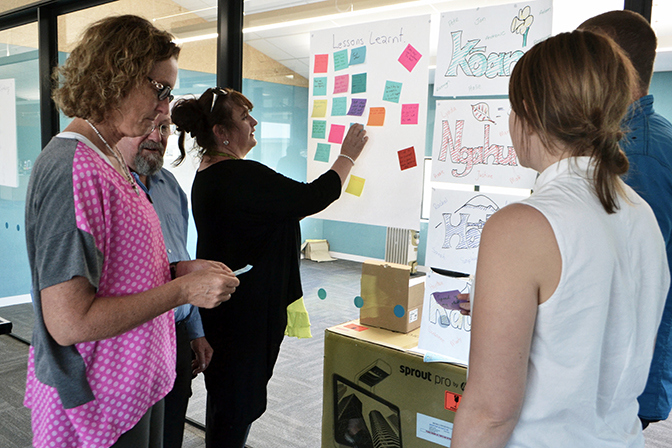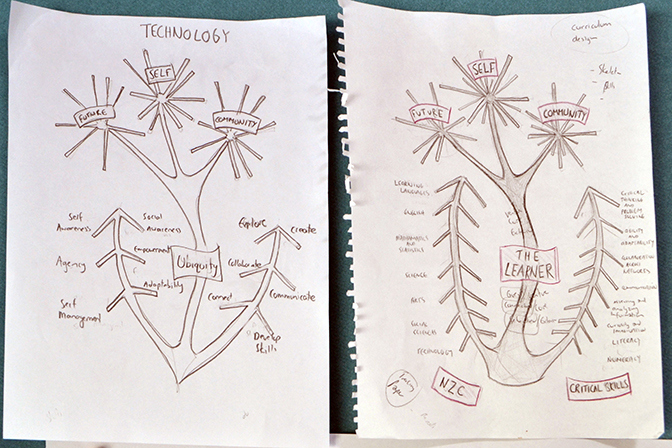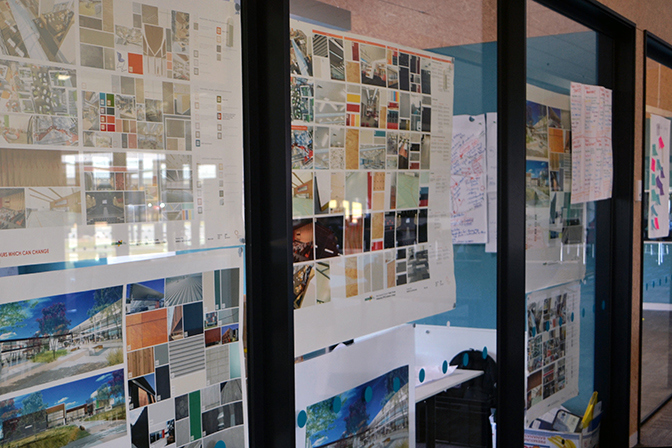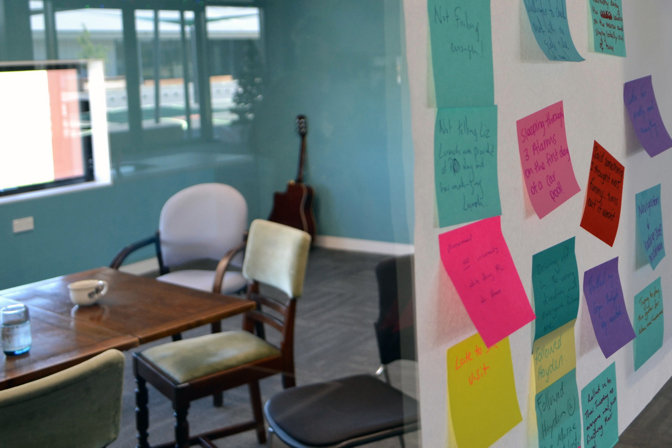Rolleston College – Establishing ways of working
Rolleston College (Horoeka Haemata), is a brand new, purpose–built school that opened its doors to 220 Year 9 students in Term 1 2017. The college is located in Rolleston, in the rapidly growing Selwyn district. The school's roll is expected to exceed 1000 students by 2021.
During 2016, as the school was being built, principal Steve Saville was building a team, who in turn were building an innovative approach to teaching and learning. He outlines what this process entailed for him and his team.
Building a vision
"Transforming our world – Takahurihia te ao"
When developing the school’s vision, the team endeavoured to:
- keep the focus on the learner at the centre;
- listen to ideas from the community and use these to inform the school's vision;
- develop shared understandings;
- work collaboratively – allow for time to build collaborative practice;
- use the OECD 7 Principles of Learning to underpin an approach;
- build strong relationships with local schools;
- share online spaces to allow for communication and collaboration;
- develop a sense of belonging;
- build positive relationships;
- enable and value risk–taking;
- honour different perspectives.
At the school there is a strong focus on the Rolleston Spirit. This approach values qualities and key competencies outlined in the New Zealand Curriculum and is supported by international research.
Leadership of change
Steve describes the pressures of being involved in the development of a new school as challenging. These pressures include managing particular details of a new build, bringing new staff on board, developing shared understandings around teaching and learning, building a curriculum, and connecting with prospective students, whānau (family), and the community.
In 2016, as new staff members joined the team, much of the focus was on building strong relationships and trust. The team use the term having 'anchors'.
“When things get tough, we will be anchors, but when things are going well, the anchors are pulled up and we keep sailing.”
All staff are encouraged to:
- be learners;
- be open to making mistakes;
- co–construct professional learning – “with” rather than “to”;
- provide a safe environment for others to try new things;
- not have to be the ‘expert’ and have all the answers – surface needs when required;
- enable others to grow as leaders.
Partnerships and perspectives
The Rolleston College team actively connects to wider education and community networks. Strategies to support this include:
- developing positive, active relationships with local primary schools;
- engaging in Grow Waitaha events;
- having a strong presence and being visible at community events;
- actively listening and building relationships;
- connecting with other new schools in Canterbury, such as the Haeata Community Campus, a new school for Years 1 – 13;
- capitalising on professional learning opportunities with other external educational organisations;
- developing strong, ongoing learner, parent, and community partnerships.
Learners at the centre
During 2016, the staff worked together to develop a personalised, future–focused curriculum. This integrated student and whānau voice, and aligned with the school's vision and values. In developing this curriculum collaboratively, staff were encouraged to:
- focus on learners at the centre;
- value learner wellbeing;
- make connections within the school and community;
- prototype, iterate and reflect;
- challenge ideas when necessary.
Out of this work, the staff created three vehicles for learning. These are designed to provide a wide–range of personalised and engaging learning experiences.
Rolleston College's Vehicles for Learning »
Whānau
The school also developed whānau groups to support learners and create a sense of belonging and community at the school
"He kākano i ruia mai i Rangiatea The seed will not be lost."
Actions to support this include:
- consulting extensively with local rūnanga;
- assigned a learning coach to each whānau group to support every learner;
- developing spaces and practices that reflect the school's cultural narrative, values, and beliefs.
Challenges and highlights
There have been key learnings for staff during the physical build, team and curriculum building process. Some of these have been:
- that both time and commitment are required to engage with the community and build effective partnerships;
- listening is a key factor in building strong relationships;
- being accessible and visible has been important in being transparent, sharing key messages, and getting feedback from the community;
- effective collaboration can be challenging, but this can lead to more effective outcomes;
- building opportunities for learners to collaborate whilst navigating NCEA can be difficult and has required a collaborative effort.
Some of the highlights have included:
- when the students say, “that is my college” and have a sense of identity and belonging before the college has even opened;
- building relationships with future students and their whānau;
- seeing the Board of Trustees process for completing the new school build and being invited to be a part of the process;
- being able to develop a strong team, vision, values, and curriculum over the course of a year;
- seeing the imagined possibilities becoming a reality.
Looking forward
Looking forward
As Rolleston College begins to operate, the staff are mindful that they need to:
- keep being adaptable – schools need to keep changing;
- continue to challenge themselves and each other;
- put well–being at the forefront – look after themselves and each other;
- keep connecting with people – learners, whānau, staff, and the wider community;
- maintain a sense of belonging, community, and connectedness.
"We need to keep walking the talk - Value what we say we VALUE!"
Advice for other schools
Advice for other schools
Steve would advise other schools who are embarking on a new build, or rebuild to:
- take the time to get a clear vision (this will be the binding that will keep you together. Make it 'come alive' from the beginning);
- be brave – don’t be afraid to push boundaries and innovate;
- listen carefully to your learners and community;
- look beyond your own sector – don't be confined or defined by it;
- be patient – good things take time;
- learn to laugh a lot!

